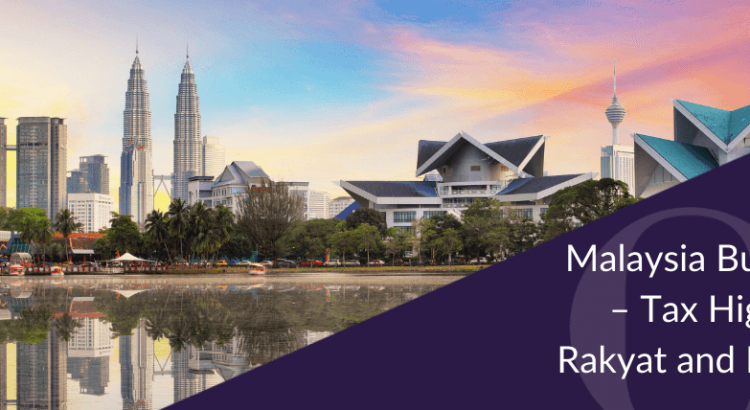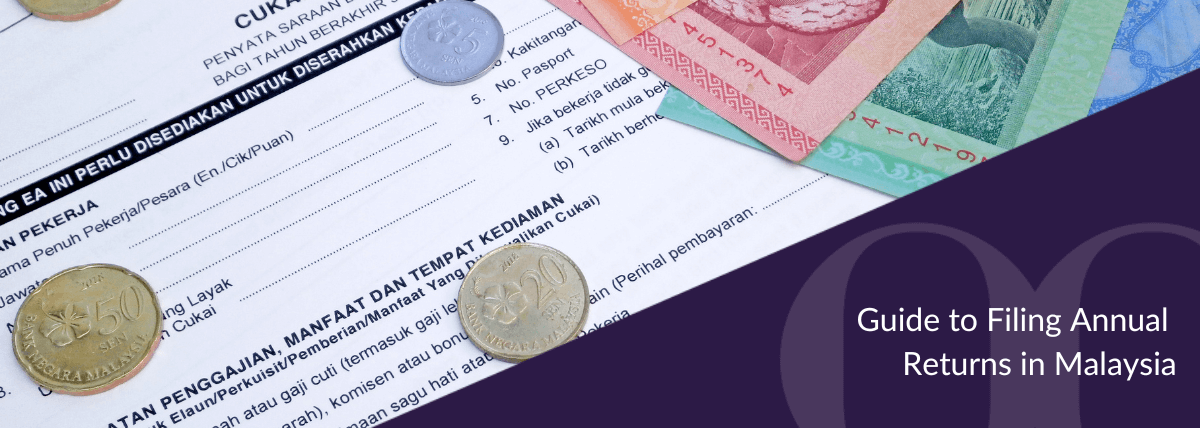Malaysia Budget 2021 – The Tax Highlights for Rakyat and Enterprises
On 6 November 2020, Finance Minister Tengku Zafrul Aziz delivered the Malaysia Budget for 2021. The budget is anchored on three crucial goals – Rakyat’s well-being, Business continuity, and Economic resilience. The three goals are a continuity of the PRIHATIN, PRIHATIN SME PLUS, PENJANA, and KITA PRIHATIN stimulus packages. Find out more below as we summarise the key tax highlights for Rakyat and Enterprises in the Malaysia Budget 2021. For further details you can download our full report.
Corporate Tax
Key takeaways in relation to corporate tax cover the following areas:
- Support for companies relocating their operations to Malaysia and undertaking new investments via tax incentives for both new and existing companies. This is an extension from the original incentives unveiled in PENJANA, however, the deadline for application has been extended until 31st December 2022.
- New incentives added for companies who have Malaysia as their principle hub and a global trading centre.
- Income tax exemption for Equity Crowd Funding to encourage alternate financing methods for technology start-ups.
- Tax incentives for Maintenance, Repair & Overhaul activities
- Preferential tax rate for manufacturers of pharmaceutical products
- Extension of income tax exemption until YA2022 for export of private healthcare services
- Simplify and merge the tax incentive for manufacturers of industrialised building system
- Income tax exemption has been extended for both East Coast Development Corridor, Iskandar Malaysia and Sabah Development Corridor & Sustainable and Responsible Investments (“SRI”)
- Tax incentives for non-resource-based R&D product commercialization activities will be reintroduced.
- Tax incentives for commercialization of R&D product by public research institutions will be extended to private higher education institutions.
- There were also a number of incentives released in relation to employment of senior citizens, ex-convicts, parolees, supervised persons and ex-drug dependents.
- Income tax deduction on investment on ASNB wakaf fund
- Extended implementation timelines for the Wage Subsidy Programme
Individual Tax
Several initiatives were released in relation to individual tax:
- Reduction in income tax rate by 1% for the chargeable income band range of RM50,001 – RM70,000
- There were also a number of incentives released across
- Compensation due to job loss
- National Education Savings Scheme
- Education fees
- Private Retirement Scheme contributions
- Lifestyle expenses
- Disabled spouse
- Medical treatment
- Employee Provident Fund (“EPF”) contributions
- A special income tax rate for non-resident individuals holding key positions in companies investing in new strategic investments was announced
- Amongst other incentives a flat 15% tax rate was announced for the Revision of Returning Expert Programme (“REP”)
Sales & Services Tax (“SST”)
The following initiatives were unveiled in relation to SST
- Sales tax exemption for the purchase of locally assembled bus including air-conditioner
- Increase of Sales Limit for Value-added and Additional Activities Carried Out in the Free Industrial Zones (“FIZs”) and Licensed Manufacturing Warehouses (“LMWs”)
Stamp Duty
The key takeaways from the budget in relation to Stamp Duty are as follows:
- Stamp duty exemption of 100% for the purchase of a first residential home
- Stamp duty exemptions for the revival of abandoned housing projects
- Stamp duty exemption will be extended for 5 years for the purchase of insurance policies and takaful certificates for “Perlindungan Tenang”
- Stamp duty exemption will be extended for another 5 years on the Trading of Exchange Traded Fund (“ETF”)
There were a number of other incentives announced around Indirect Taxes. Our full report covers these and the above highlights in more detail.



